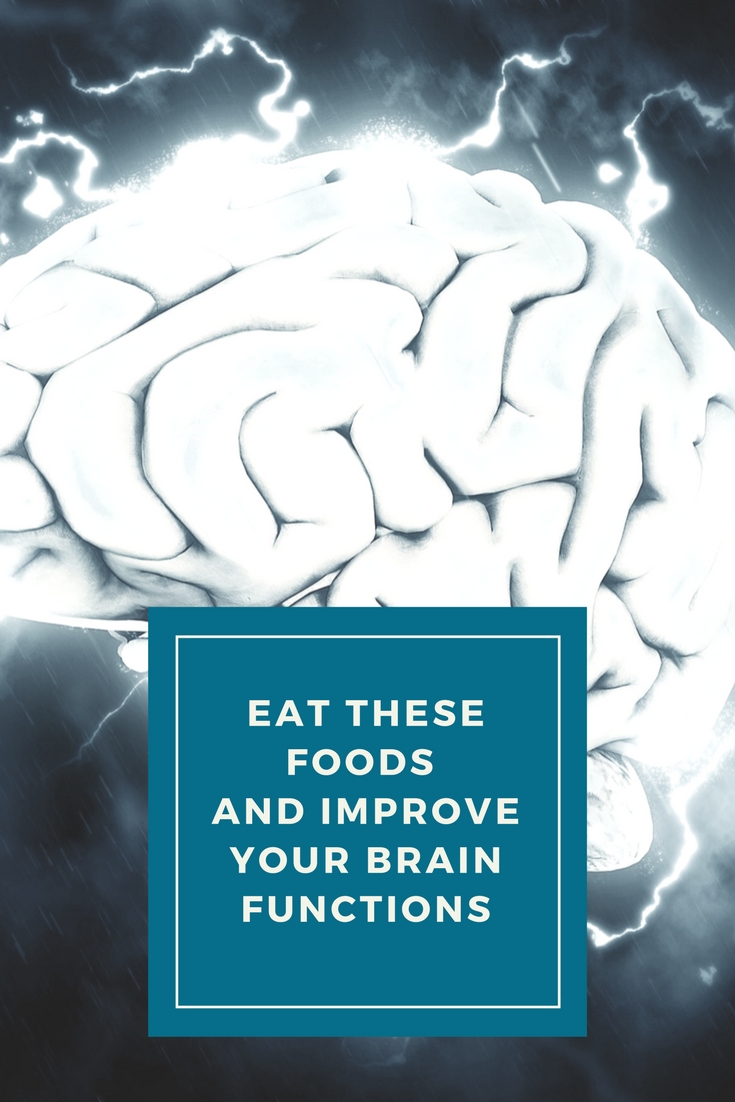
There is a growing number of people interested in eating healthier food. We are now more concerned about our weight, our digestion, and our energy levels. We care about what’s in our food, we try to buy organic and local, and we make sure to consume more vegetables than we use to.
But what about our brain? Do we take care of it? Is there any food that can improve our memory and focus? What can we eat to provide good fuel for our brain? What is the best brain food out there?
Certain foods are richer in antioxidants, vitamins, minerals, healthy fats and carbohydrates, which are all needed for healthy brain functions. They are also protective against inflammation and brain diseases.
The best brain food to improve your focus and memory.

Walnuts
Walnuts don’t have the shape of a small brain for no reason. It turns out that they can also do wonders for your brain. Consuming a few walnuts a day may improve your cognitive health and keep you away from dementia.
Why are walnuts a great brain food? Walnuts are rich in vitamin E, which is known to be protective against Alzheimer’s disease. They are packed with antioxidants, vitamins and minerals that help improve mental health.
Walnuts are a very healthy food that we should all eat every day. They are a great source of ALA Omega-3, which are then converted into EPA and DHA Omega-3. These fatty acids are essential for brain functions and are particularly needed during pregnancy.This makes walnuts our number 1 brain food.
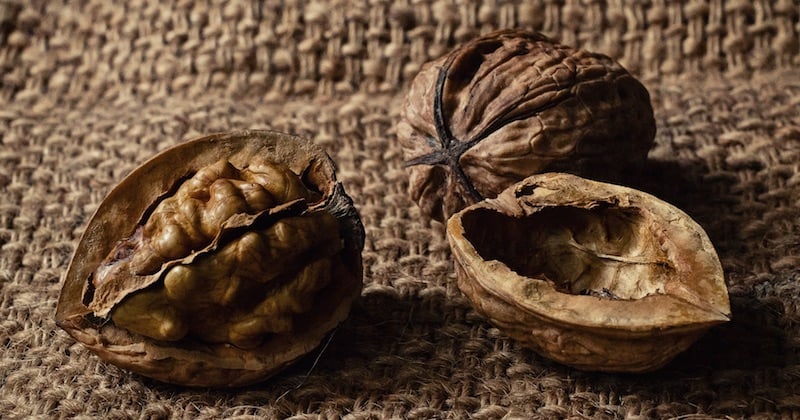
Avocados
Many people are wondering if they should eat avocados, because they contain a lot of fat. You need to understand that avocados are loaded with monounsaturated fats. These are the good fats, unlike saturated fat and trans fat!
Avocados also contain vitamin K and folate (B9), which makes them an amazing brain food. These two vitamins actually help to prevent blood clots in the brain (strokes). Vitamin K and B9 also help improving cognitive functions like your memory and your concentration.
It’s also good to know that avocados are high in protein. They actually have the highest protein content of any fruit, which makes them a great alternative to animal protein.
Beetroots
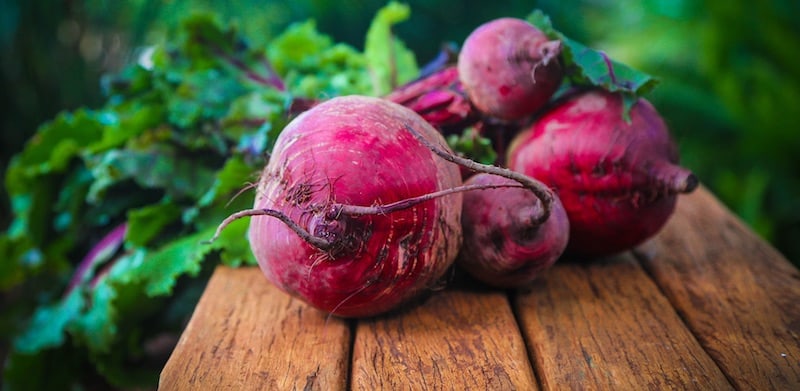
A beetroot is probably one of the most nutrient-rich plant food out there and a great brain food. Nitrates, which are a salt naturally found in beets, are known to boost blood flow and encourage mental performance.
Also great at reducing inflammation, beets are protective against cancer, while being a powerful detoxifier. If you are looking for good detox foods to eliminate toxins from your body, beets are definitely a good choice.
And there is more! Studies have demonstrated that eating or drinking beet juice can help boosting energy and physical performances. Here’s a video from NutritionFacts.org about the performance-enhancing qualities of nitrate-rich vegetables like beetroots.
Turmeric
The spice turmeric is very popular in Indian cuisine and has also been used throughout history for its healing properties. The magic ingredient in turmeric is called curcumin. This compound gives the spice its yellow colour and its powerful anti-inflammatory agents.
Curcumin can boost antioxidant levels in your body and fight DNA damage. It boosts your immune system and improves the flow of oxygen going through your brain. This helps you to stay alert and fit, and to process information. Studies show that the antioxidant activity of turmeric can be ten times more potent than resveratrol, the very trendy antioxidant found in wine.
It is possible to improve the bioavailability of turmeric by heating it and consuming it with ground black pepper. Piperine, an alkaloid found in black pepper, can increase the absorption by 2000%.
Blueberries
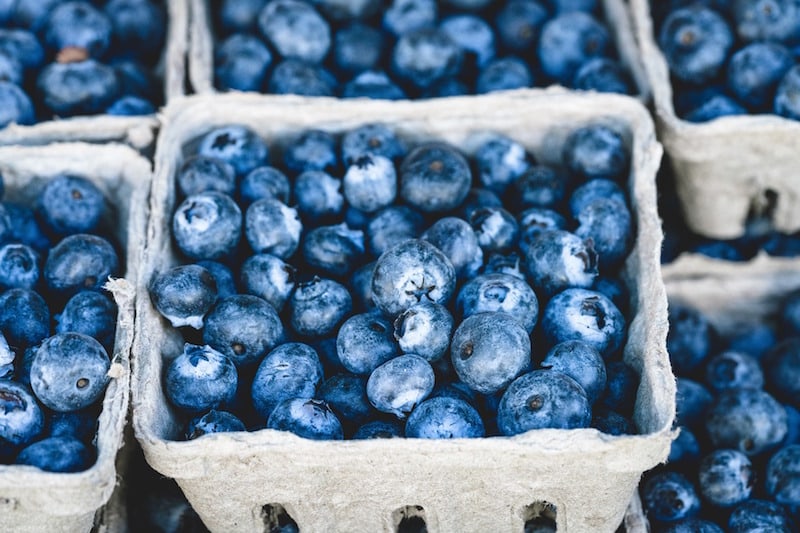
Number 5 on our brain food list is blueberries. They are low on the glycemic index and they are packed with the best nutrients ever. Loaded with vitamin C and K, all types of berries are great for your brain.
Thanks to their high content of gallic acid, blueberries are remarkably efficient at protecting your brain against oxidative stress and degeneration.
In his best seller book “How not to die”, Doctor Michael Greger recommends that we should eat at least one portion of berries daily, because of their incredible antioxidant properties.
Chocolate
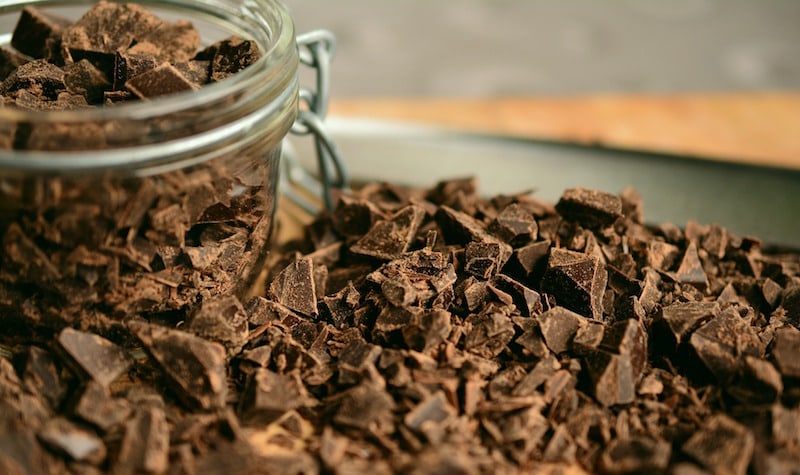
Yes, chocolate can be good for you. But be aware, not all chocolate is healthy! Commercial chocolate that you will find at the store is highly processed, and it contains dairy and artificial sugars.
Real cacao or dark chocolate is what you need. This stuff is the real deal. Cacao is rich in flavonols, a type of phytochemicals that have powerful antioxidant and anti-inflammatory properties. They have a positive effect on your brain, your blood pressure and your blood flow.
Like the other brain foods listed in this article, cacao is a great source of magnesium, iron and vitamin C, which are essential micronutrients for good health. Here’s David Wolfe, a famous health and nutrition expert, talking about his passion for chocolate on TEDx Talk.
Broccoli
Broccoli comes from the cruciferous vegetable family (cauliflower, cabbage, Brussel sprouts) and it is one of the best brain foods to add to your family’s diet plan. If your children are picky with their green veggies, you should find a way to sneak some into their soups, stews and smoothies.
Broccoli provides high levels of vitamin A, C, K, folate, calcium, iron, magnesium, manganese and potassium, which promotes healthy brain functions and protects against DNA damage and cancer.
Like other vegetables, broccoli is rich in fibre, which is needed for a good digestion and regular bowel movements. Fibre helps you feeling full after a meal, while encouraging weight loss and colon cleansing.
Celery
Did you know that celery only contains 16 calories per cup? If this article was about weight loss, celery would be at the top of the page. But let’s not stop at its caloric density. Celery offers other health benefits that make it a good brain food!
Celery contains good amounts of water, which is needed for the brain and other functions in the body. It is also rich in antioxidants and polysaccharides, which fight inflammation, joint aches and irritable bowel syndrome.
Celery contains alkaline minerals like potassium and calcium, as well as dietary fibre. All of this makes celery a great food choice if you wish to cleanse your body from toxins, maintain or lose weight, and improve your brain function.
Leafy greens
Unfortunately, so many people do not eat their greens, when they should actually consume two portions daily. We should all do like Popeye and eat our spinach like we depend on it.
In fact, all leafy green vegetables are nutrient-rich foods. Spinach is great, but so is kale, swiss chard, romaine and arugula.
Leafy greens are a good brain food because they help at preventing dementia. They provide essential minerals, vitamin A and vitamin K, which help fighting inflammation and to keep strong bones.

Rosemary
Rosemary is a wonderful herb that you can use to flavour your food. Its strong aroma marries well with baked veggies and soups. But wait, why did rosemary make it to the brain food list?
One of the main ingredients in rosemary, called Carnosic acid, helps protect your brain from neurodegeneration. It combats free radicals, which are linked to the development of Alzheimer’s disease, dementia, strokes as well as the ageing of the brain.
Rosemary also has antioxidant and anti-inflammatory powers, which helps prevent the deterioration of eyesight.
Fasting for your brain
So what about not eating food at all? Recent studies have been demonstrating the benefits of fasting on brain health. It seems that fasting could lower the risk of developing Alzheimer’s disease and Parkinson’s.
Restricting calories also seem to have a positive impact, showing prolonged lifespan and a stronger immune system. Fasting or the restriction of calories allow your body to grow new stem cells and repair DNA.
Unfortunately, it is still difficult to have serious data on the subject, because pharmaceutical companies can’t patent fasting! There is not much money to be made with it…
You can try fasting at home with our 7 day detox kit.
